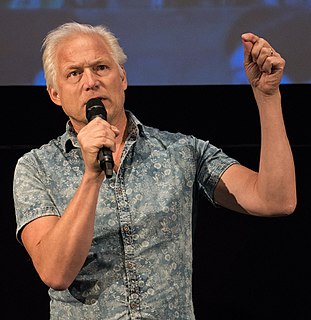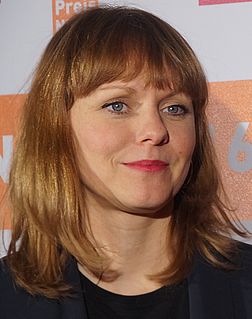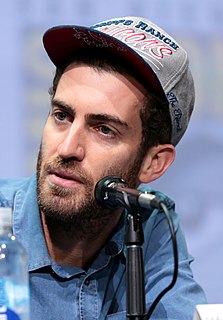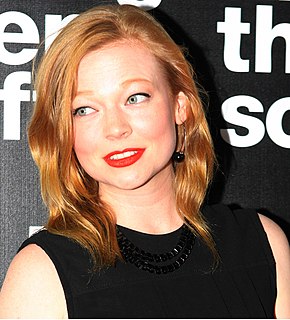A Quote by Dennis Hopper
You know, this is such a rich time that we've just been involved in, and there's really a job now for historians. Film is still very young. This is the first hundred years of filmmaking. So I think it's important that we have some sense of history and continuity. Especially in film.
Related Quotes
Film team kept me very, very shielded when I was that young, because of course, I was seven years old. You know, you're still kind of reading. It's still kind of like, "Cat." "Dog." "Ann jumped over fence." So I guess in a way it helped me progress in school, too, because I was reading so much and memorizing so much. But they kept me very shielded from everything that was going on in the The Amityville Horror. I didn't know anything, basically, about the film. I just knew that it was a scary film. I wasn't allowed to watch it. I can watch it now, I'm just too scared.
I left film because I felt that photography was my art. It was something I could do on my own, whereas film was so collaborative. I thought as a photographer I could make something that was artistic and that was mine, and I liked that. And it wasn't until I got back into film and I have very small crews and I could do very tiny filmmaking that wasn't 100 people that I still felt that I was making something artistic as a filmmaker. So, you know, I'm an artist, and whether it's photography or film, I want my voice to be there and I think my voice is very strong in this film.
I got into film in an odd way - when I was 17 years old I participated in a Swedish film as an actor. I think every person at that age should get a role in a film, because during that time you want acceptance, and when you have a role in a film you become an important person. I think about that now, and that was my fantastic starting point.
[Sundance] still feels significant. I don't think you can help but come here and not feel that sense of history and its significance in influencing film. And I think it still does. Some of that is based on history, but it's also based on really incredible programmers who are showcasing such an incredible variety of cinema.
We with Komplizen Film believe very much in the writer-director and in the freedom of a filmmaker. I think it's always good to be involved where you spend the money. Filmmaking, you see in the picture what the money's spent for. I never had to leave a phase of filmmaking before being really happy, and that was really a big luxury. That could happen, I think, because I am my own producer.
In a few hundred years, when the history of our time will be written from a long-term perspective, it is likely that the most important event historians will see is not technology, not the Internet, not e-commerce. It is an unprecedented change in the human condition. For the first time - literally - substantial and rapidly growing numbers of people have choices. For the first time, they will have to manage themselves. And society is totally unprepared for it.
I really discovered [Dr.Strange] through hearing about this film and first meeting Scott [Derrickson] and getting into it and just opening up and saying, "Okay, this is, like all comics, very much of its era," and my first question was, 'How do you make this film? Why do you make this film now?' and the answers were so enticing that I was like, "I'm in."
Are there still other possibilities? Of course there are. What is important to recognize is that all three historical options are really there, and the choice will depend on our collective world behavior over the next fifty years. Whichever option is chosen, it will not be the end of history, but in a real sense its beginning. The human social world is still very young in cosmological time. In 2050 or 2100, when we look back at capitalist civilization, what will we think?


































